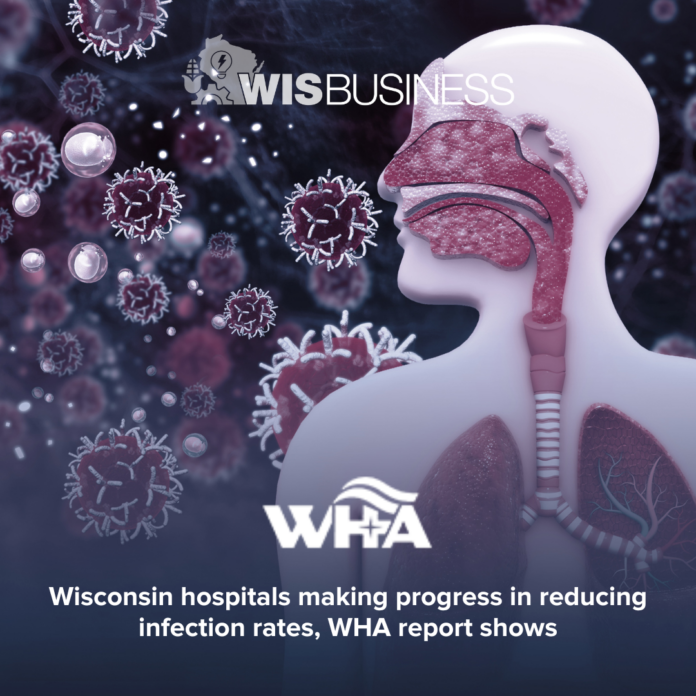Wisconsin hospitals made progress last year in reducing rates of various infections, including lowering the rate of catheter-associated urinary tract infections by 26.7%.
That’s according to the Wisconsin Hospital Association’s Wisconsin Health Care Quality Report, which details efforts to improve the quality of care delivered by health care providers in the state along with resulting impacts.
In a message in the report, WHA President and CEO Eric Borgerding said Wisconsin health care providers “made significant strides” in 2023 toward that goal, as well as improving patient safety, addressing workforce challenges, supporting rural health care and fighting the opioid epidemic.
He touts hospitals’ quality initiatives and staff training programs, arguing they have led to major reductions in hospital-acquired infections including MRSA and others.
“Wisconsin’s culture of transparency and accountability has empowered health care teams to proactively identify and mitigate potential risks, creating a safer environment for all patients,” Borgerding said.
Hospitals in the state last year reduced rates of central line-associated bloodstream infections by 6.8%, surgical site infections from abdominal hysterectomies by 1.8%, clostridioides difficile bacterial infections by 16.9%, and methicillin-resistant staphylococcus aureus infections, or MRSA, by 13%, the report shows.
Along with these infection rate reductions, hospitals also reduced the rate of gastrointestinal hemorrhage by 21.5% and the rate of acute stroke by 39.7%, which WHA touts as “remarkable.”
Meanwhile, all-cause unplanned readmissions were reduced by 4.8%, helping to address a significant source of higher health care costs.
The report highlights results of the federal Hospital Readmissions Reduction Program, which reduces Medicare payments to hospitals with excess readmissions. Payments can be reduced by up to 3% based on how hospitals perform based on a set of specific measures, focused on conditions such as heart failure, pneumonia, knee or hip replacements and more.
Twenty Wisconsin hospitals will get no penalty in 2024 from this program — equal to 31% of eligible hospitals, compared to 27% last year, the report shows. For fiscal years 2023 and 2024, the state is ranked No. 15 nationally for the lowest dollar amount of penalties under this program.
WHA also points to federal measures of patient safety outcomes in the state, noting the Centers for Medicare & Medicaid Services Star Program gave 26.9% of Wisconsin hospitals a five-star rating, almost twice as high as the national rate of 13.4%.
See the report.






